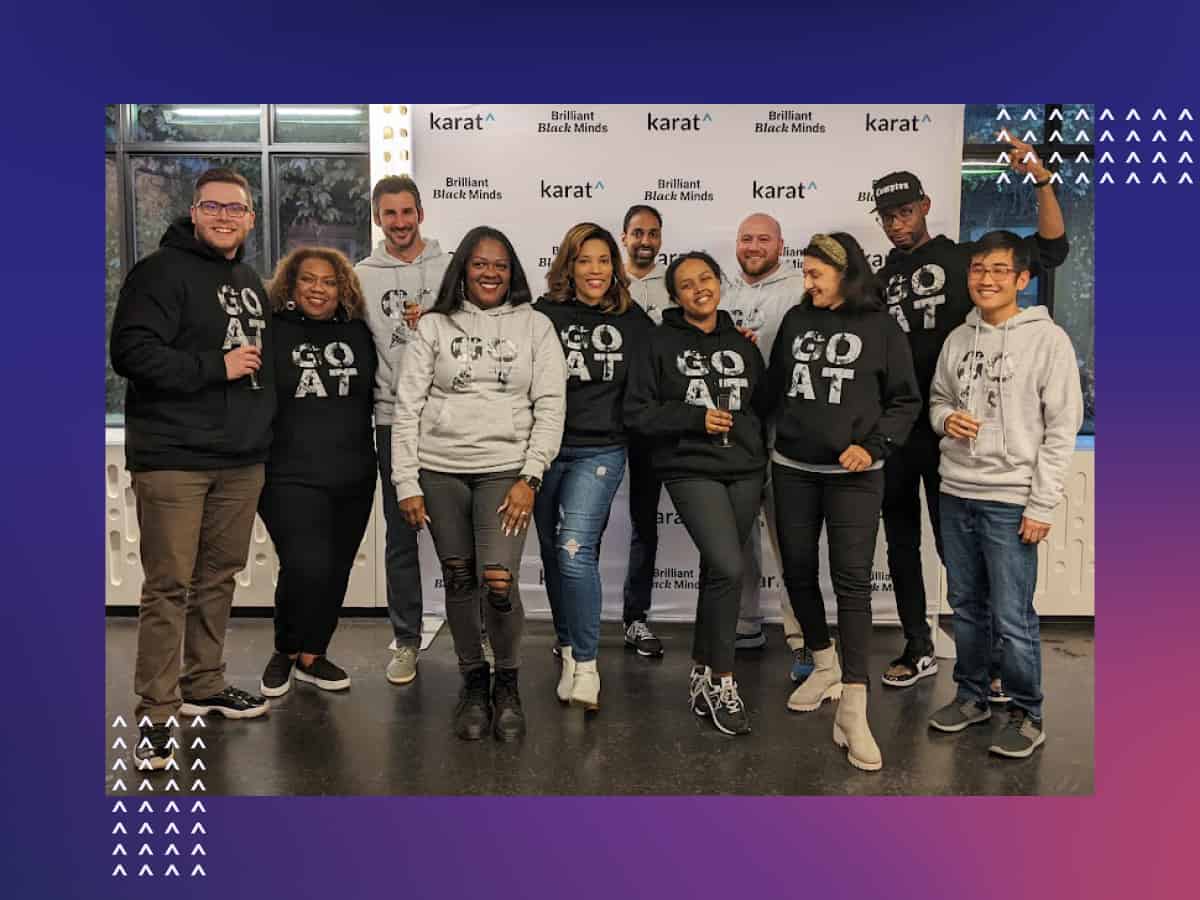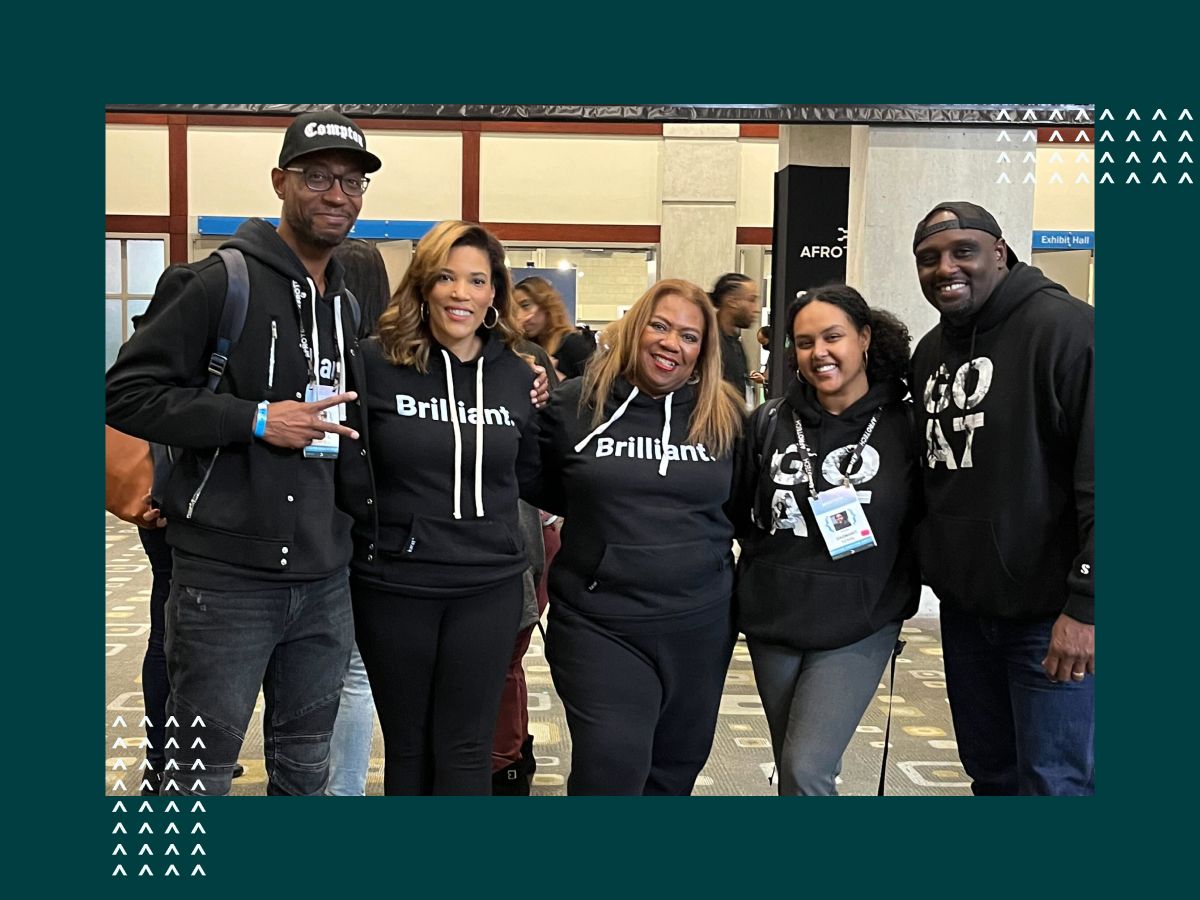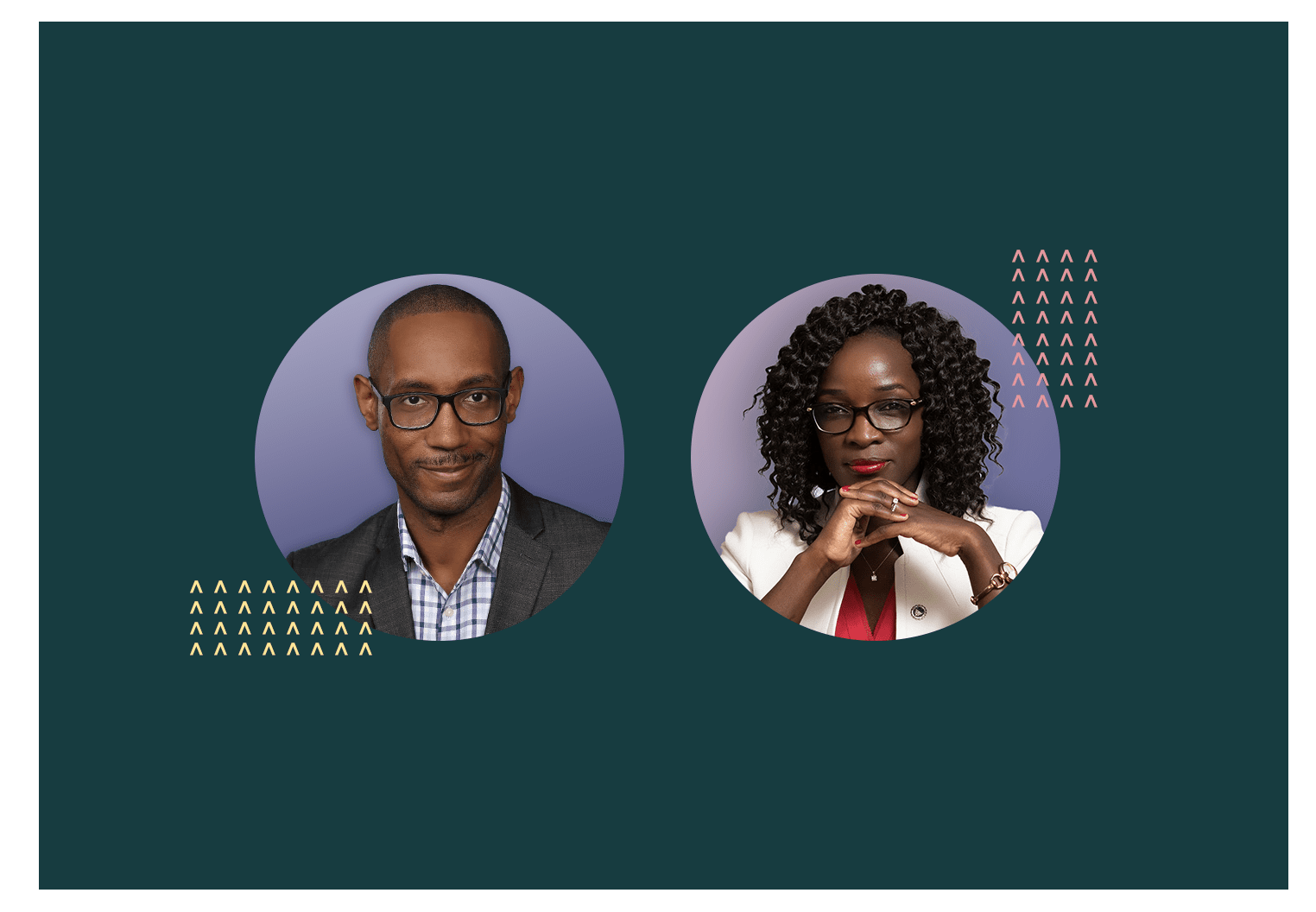Inside Karat
01.13.2023
MLK Day Q&A with Crystal Moore

Jeffrey Spector


Last year, Karat hired Crystal Moore to run Brilliant Black Minds, Karat’s initiative to help double the number of Black engineers in tech. Martin Luther King Jr. has come up more than once in my conversations with Crystal, and I thought sending her a few questions about what the means for her and her work would be an excellent way to welcome Crystal and celebrate MLK Day.
Jeff: I remember visiting the National Civil Rights Museum. There was a timeline of American history from the beginning of slavery until now, and I was struck by how close we still are in time to the civil rights movement. As Dr. King said, “the arc of the moral universe is long, but it bends toward justice.” I was lucky enough to get a guided tour of the museum from Reverend Billy Kyles, who was with Dr. King when he was assassinated. Reverend Kyles said, “You can kill the dreamer, but you can’t kill the dream. The dream lives on.” I’ll never forget it. What is your touchstone experience when you think about MLK Day? What connects you to his movement and his legacy?
Crystal: I grew up in a small town in Mississippi, just down the road from where the three civil rights workers, Andrew Goodman, Michael Schwerner, and James Cheney, were murdered during Freedom Summer in 1964. There was one window in my grandmother’s house that was broken and was never repaired never got fixed. When I asked her why, she told me the Ku Klux Klan had shot it out in the 60s, and she left it that way as a sort of monument to what our family had been through. A lot had changed by the time I was growing up, but a lot hadn’t. My whole world was still framed in black and white. I was always acutely aware of what racism is and how it affects people who look like me, and that’s why equity and diversity is not only a professional endeavor but a profoundly personal one.
Jeff: When Dr. King was killed, he was in Memphis to support sanitation workers who insisted on economic justice. That’s a topic you and I have talked about a lot in relation to Karat’s work. What do you think the fight for economic justice is centering on now?
Crystal: My dad was a forklift driver, and my mom worked for the State of Mississippi in Human Resources, and as both jobs got automated, they were laid off. I still remember how demoralizing it was for them; they were both working hard to provide for our family and put bread on the table, but they didn’t have the skills to adjust to a changing economy and didn’t know where to get them. To me, the tech sector can do one of two things. It can either uplift everybody—or it can separate and divide us. I think economic justice today means making sure the 21st-century economy uplifts everybody, and gives everybody an equal opportunity to thrive in high-wage jobs. When I say thrive, I mean something specific. It’s not enough for people who are underrepresented in tech to get hired. That’s just the start. They also need the resources, the information, the network, the freedom, and the benefit of the doubt — in short, the support—to be themselves at work and succeed on their own terms. The good news is that we are the help that we need, and organizations like Brilliant Black Minds are in place and working!
Jeff: You’ve said that one quotation from Dr. King especially resonates with you. It’s the one from the March on Washington speech in which he says, “We are confronted with the fierce urgency of now.” He followed that up by saying, “Now is the time to make real the promises of democracy.” It’s fascinating because when he said “now,” he meant 60 years ago. But all those words ring just as true today. As Reverend Kyles said, “The dream lives on.” Why does the fierce urgency of now stick with you? What does it mean to you?
Crystal: After George Floyd and the season of social unrest that followed, people are more aware of inequality—in tech and in society in general—than at any other time in my memory. The fierce urgency of now says we have to convert this awareness into action. Because we can either keep talking about how bad the diversity and opportunity stats are in tech are, or we can start hammering away at the systemic barriers. We finally see the problem. Will we be bold enough to see solutions with the same clarity?
We need leaders to consider some radical and systematic changes. To take just one example, should we consider dropping graduation requirements for software engineering roles? The fierce urgency of now demands that we start asking and answering hard questions like this.
There is a popular saying that goes, “When white America catches a cold, Black America catches pneumonia.” In this time of economic uncertainty–with inflation and hiring slowdowns–never has it been more important that corporate leaders ensure they’re still investing in programming to support racial equality and continue hiring candidates from diverse backgrounds. That is how we make systemic change. This is how we act on Dr. King’s legacy and his desire for income and racial equality.
Related Content

Inside Karat
10.17.2023
At Karat, our enduring commitment to our purpose to unlock opportunity is the driving force behind everything we do. A vital part of that purpose is the invaluable contribution of our Interview Engineers, who conduct technical interviews with software engineers worldwide. They not only enhance outcomes for our clients and candidates. They also create pathways […]

Inside Karat
11.23.2022
The Karat team traveled to Austin, Texas last week to attend the first AfroTech conference since the pandemic, following two years of virtual events. The conference, hosted by Blavity, Inc, is one of the largest Black professional tech conferences. Over 15,000 Black professionals gathered for five days, to learn, network and discover their next tech […]

Inside Karat
03.10.2022
SEATTLE–Karat, the world’s largest interviewing company, is celebrating the one-year anniversary of the Brilliant Black Minds program by announcing new industry partners, adding two new advisory board members and hosting a special SXSW edition of Real Talk. Former Google senior software engineer and founder of Morgan Latimer Consulting, Anthony D. Mays, is joining the Brilliant […]